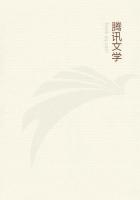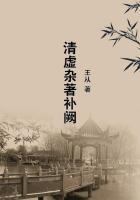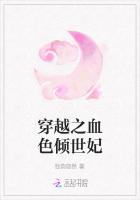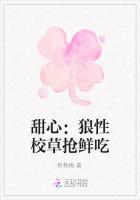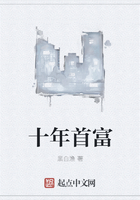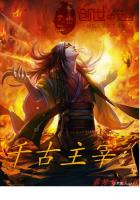But not only are the sources and causes of their origination and growth the same as those of their destruction, but also the sphere of their actualization will be the same; for this is also true of the things which are more evident to sense, e.g. of strength; it is produced by taking much food and undergoing much exertion, and it is the strong man that will be most able to do these things. So too is it with the virtues; by abstaining from pleasures we become temperate, and it is when we have become so that we are most able to abstain from them; and similarly too in the case of courage; for by being habituated to despise things that are terrible and to stand our ground against them we become brave, and it is when we have become so that we shall be most able to stand our ground against them.
3
We must take as a sign of states of character the pleasure or pain that ensues on acts; for the man who abstains from bodily pleasures and delights in this very fact is temperate, while the man who is annoyed at it is self-indulgent, and he who stands his ground against things that are terrible and delights in this or at least is not pained is brave, while the man who is pained is a coward. For moral excellence is concerned with pleasures and pains; it is on account of the pleasure that we do bad things, and on account of the pain that we abstain from noble ones. Hence we ought to have been brought up in a particular way from our very youth, as Plato says, so as both to delight in and to be pained by the things that we ought;for this is the right education.
Again, if the virtues are concerned with actions and passions, and every passion and every action is accompanied by pleasure and pain, for this reason also virtue will be concerned with pleasures and pains. This is indicated also by the fact that punishment is inflicted by these means; for it is a kind of cure, and it is the nature of cures to be effected by contraries.
Again, as we said but lately, every state of soul has a nature relative to and concerned with the kind of things by which it tends to be made worse or better; but it is by reason of pleasures and pains that men become bad, by pursuing and avoiding these- either the pleasures and pains they ought not or when they ought not or as they ought not, or by going wrong in one of the other similar ways that may be distinguished. Hence men even define the virtues as certain states of impassivity and rest; not well, however, because they speak absolutely, and do not say 'as one ought' and 'as one ought not'
and 'when one ought or ought not', and the other things that may be added. We assume, then, that this kind of excellence tends to do what is best with regard to pleasures and pains, and vice does the contrary.
The following facts also may show us that virtue and vice are concerned with these same things. There being three objects of choice and three of avoidance, the noble, the advantageous, the pleasant, and their contraries, the base, the injurious, the painful, about all of these the good man tends to go right and the bad man to go wrong, and especially about pleasure; for this is common to the animals, and also it accompanies all objects of choice; for even the noble and the advantageous appear pleasant.
Again, it has grown up with us all from our infancy; this is why it is difficult to rub off this passion, engrained as it is in our life. And we measure even our actions, some of us more and others less, by the rule of pleasure and pain. For this reason, then, our whole inquiry must be about these; for to feel delight and pain rightly or wrongly has no small effect on our actions.
Again, it is harder to fight with pleasure than with anger, to use Heraclitus' phrase', but both art and virtue are always concerned with what is harder; for even the good is better when it is harder.
Therefore for this reason also the whole concern both of virtue and of political science is with pleasures and pains; for the man who uses these well will be good, he who uses them badly bad.
That virtue, then, is concerned with pleasures and pains, and that by the acts from which it arises it is both increased and, if they are done differently, destroyed, and that the acts from which it arose are those in which it actualizes itself- let this be taken as said.
4
The question might be asked,; what we mean by saying that we must become just by doing just acts, and temperate by doing temperate acts;for if men do just and temperate acts, they are already just and temperate, exactly as, if they do what is in accordance with the laws of grammar and of music, they are grammarians and musicians.
Or is this not true even of the arts? It is possible to do something that is in accordance with the laws of grammar, either by chance or at the suggestion of another. A man will be a grammarian, then, only when he has both done something grammatical and done it grammatically;and this means doing it in accordance with the grammatical knowledge in himself.
Again, the case of the arts and that of the virtues are not similar;for the products of the arts have their goodness in themselves, so that it is enough that they should have a certain character, but if the acts that are in accordance with the virtues have themselves a certain character it does not follow that they are done justly or temperately. The agent also must be in a certain condition when he does them; in the first place he must have knowledge, secondly he must choose the acts, and choose them for their own sakes, and thirdly his action must proceed from a firm and unchangeable character.
These are not reckoned in as conditions of the possession of the arts, except the bare knowledge; but as a condition of the possession of the virtues knowledge has little or no weight, while the other conditions count not for a little but for everything, i.e. the very conditions which result from often doing just and temperate acts.

